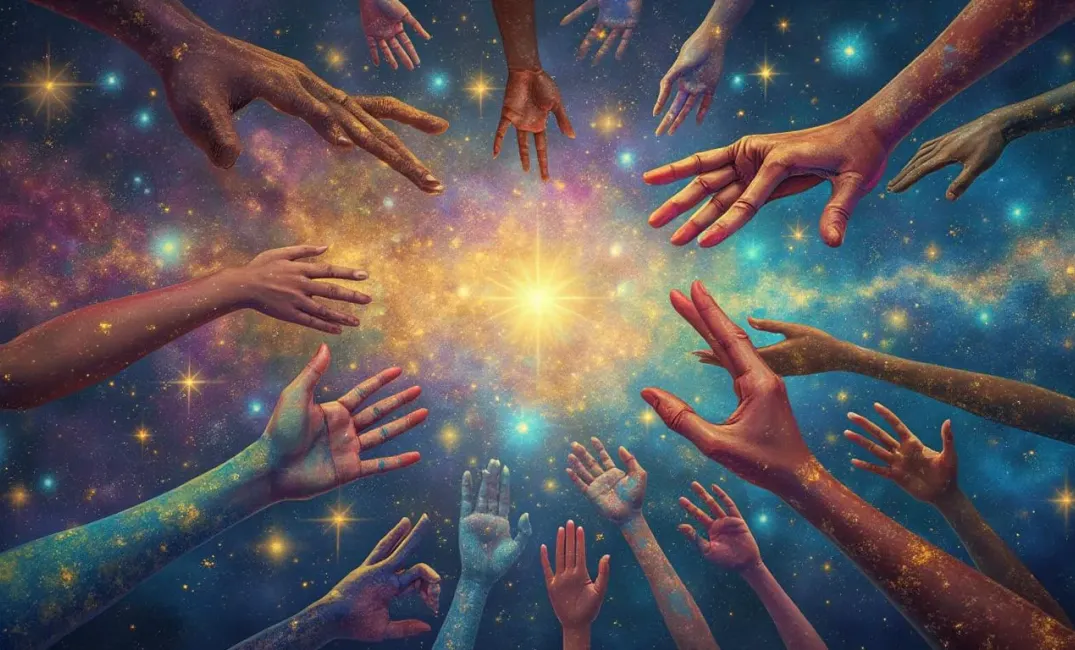Introduction: Love's Timeless Essence
"Love is the only force capable of transforming an enemy into a friend." — *Martin Luther King Jr.*
Love, in its myriad forms, has been a catalyst for transformation throughout human history. As a universal force, it transcends cultural, temporal, and existential boundaries, providing a foundation for connection, growth, and change. This entry delves into the profound nature of love, examining its historical, psychological, and cultural significance and its enduring influence on humanity's journey.
The Historical Perspective: Love Through the Ages
Love in Mythology and Ancient Societies
- Mythical Manifestations: In ancient mythologies, love is often depicted through divine figures like Eros and Aphrodite, who represent passion, beauty, and creativity. Such myths underscore love's power as a guiding force that shapes the destinies of gods and humans alike.
- Cultural Traditions: Across ancient civilizations, love rituals and customs shaped social structures and personal relationships. From arranged marriages to romantic unions, love played a central role in societal harmony and cohesion.
Philosophical Explorations of Love
- Classical Philosophers: Thinkers like Plato and Aristotle explored love as an essential element of human existence. Plato's concept of "Platonic love" emphasizes intellectual and spiritual connection, while Aristotle considered love a vital part of friendship and moral virtue.
- Mystical and Religious Interpretations: Religious traditions interpret love as divine compassion and universal salvation. Whether through the Christian emphasis on agape (selfless love) or Sufi poetry's spiritual fervor, love is seen as a path toward enlightenment and union with the divine.
The Science of Love: Insights from Psychology and Biology
Psychological Theories of Love
- Attachment Theory: Psychologists like John Bowlby and Mary Ainsworth explored love through attachment theory, highlighting the role of early bonds in shaping emotional development and interpersonal relationships across the lifespan.
- Triangular Theory of Love: Robert Sternberg's triangular theory analyzes love's complexity through three components: intimacy, passion, and commitment. This framework offers insights into the dynamics of romantic relationships and their evolution over time.
Biological Underpinnings
- The Chemistry of Love: Neurotransmitters such as dopamine, oxytocin, and serotonin play a pivotal role in the experience of love, reinforcing emotional bonds and trust. These biochemical processes highlight how love is rooted in both brain and body.
- Evolutionary Perspectives: From an evolutionary standpoint, love is considered essential for reproductive success and nurturing offspring. The propensity for enduring bonds ensures the survival and genetic continuity of the human species.
Love's Influence on Culture and Society
Artistic Expressions of Love
- Literature and Poetry: Love has inspired countless literary and poetic works, from Dante's "Divine Comedy" to the sonnets of Shakespeare. These creations reflect humanity's quest to understand and articulate love's multifaceted nature.
- Music and Dance: Songs and dances across cultures frequently celebrate love, portraying it as a source of joy, longing, and inspiration. The universal appeal of love-themed music reinforces its emotional resonance and capacity to unite people.
Social Movements and Equality
- Love as a Catalyst for Change: Love has often fueled social movements, advocating for equality, justice, and nonviolence. Figures like Martin Luther King Jr. and Mahatma Gandhi harnessed love's transformative power to inspire social reform and collective progress.
- Love Beyond Borders: In a globalized world, love transcends geographical and cultural barriers, promoting tolerance and understanding. Intercultural relationships and exchanges offer insights into the diversity and commonality of human experiences.
Love in the Modern Era: Challenges and Opportunities
Navigating Modern Relationships
- Digital Connectivity and Love: Technology has reshaped how people form and maintain romantic relationships. While digital platforms offer new opportunities for connection, they also present challenges related to authenticity, privacy, and meaningful interactions.
- Balancing Autonomy and Intimacy: Modern relationships often navigate the tension between individual autonomy and emotional intimacy, seeking balance in a fast-paced, changing world where roles and expectations continually evolve.
Love in the Age of Innovation
- Artificial Intelligence and Love: The intersection of AI and love raises profound questions about authenticity and emotional connection. As AI technologies mimic human emotions, understanding the ethical implications becomes crucial in preserving love's genuine essence.
- Sustainability and Compassion: Love's role extends to nurturing compassion for the planet and all its inhabitants. Sustainable practices grounded in love for the Earth and future generations promote collective action toward environmental stewardship.
The Future of Love: A Vision for Tomorrow
Love Across Galaxies
- Interstellar Aspirations: As humanity reaches for the stars, love remains an integral part of interstellar exploration. Building habitable communities beyond Earth requires empathy, cooperation, and shared ideals—rooted in the enduring presence of love.
- Cultural Exchange and Understanding: Love fuels curiosity and openness, guiding cross-cultural interactions and exchanges in cosmos-spanning endeavors. It inspires a humanity that is enriched by diversity and unified in its dreams.
Nurturing a Legacy of Love
- Education and Empowerment: Teaching future generations about the power of love fosters empathy, resilience, and a commitment to positive impact. Education that prioritizes emotional intelligence benefits individuals and societies alike.
- Building a Compassionate Future: By embracing love as a guiding principle, humanity can create a compassionate future that honors individual dignity, fosters collaboration, and cultivates a sense of shared purpose across species and worlds.
Conclusion: Love's Unceasing Embrace
"Where there is love, there is life." — *Mahatma Gandhi*
Love endures as a primordial force that shapes personal lives and collective destinies. It binds humanity to its past, informs its present, and charts its future—a beacon of hope and transformation amidst the vast unknown.
In our cosmic journey, love remains a testament to humanity's capacity for greatness, resilience, and unity. It is the thread that weaves through the tapestry of existence, reminding us of our shared humanity and limitless potential to forge a world—and a universe—brimming with compassion, understanding, and enduring light.
LOVE, SOCIETY, EVOLUTION, AI, RELATIONSHIPS, CULTURE, COMPASSION, HISTORY, PSYCHOLOGY

